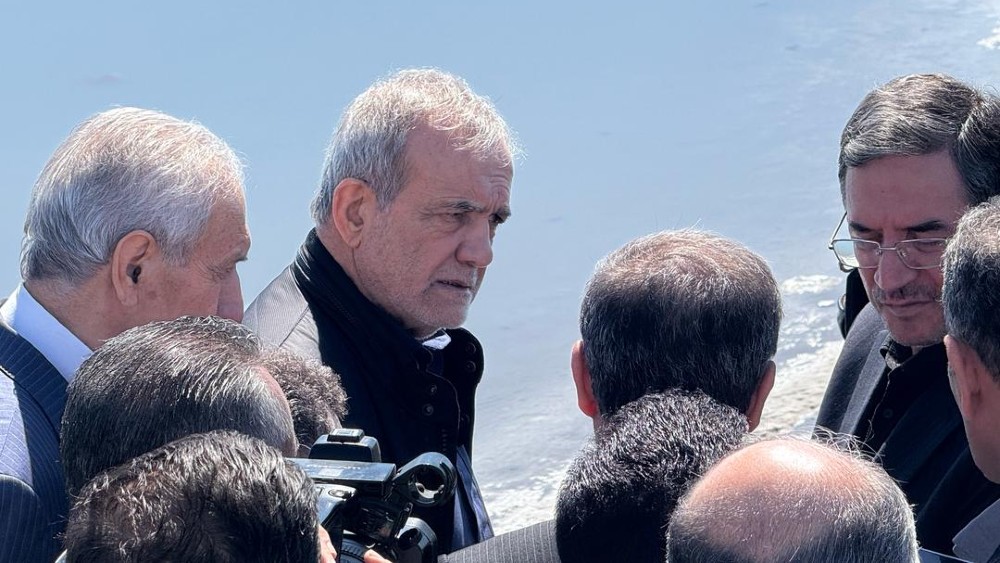On Doha summit sidelines, Pakistan PM reaffirms diplomatic support after Israeli strikes

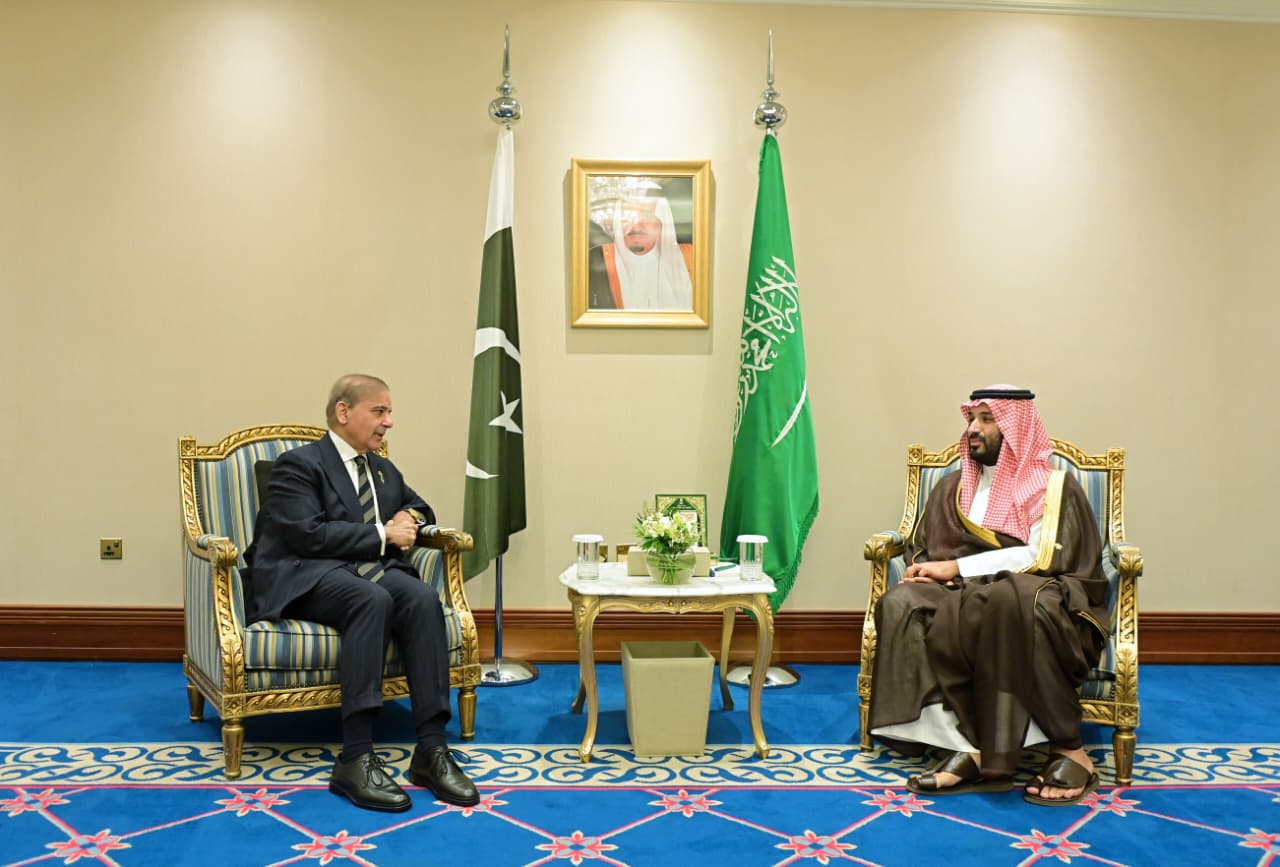
Prime Minister Muhammad Shehbaz Sharif meets the Crown Prince of Kingdom of Saudi Arabia H.E. Muhammad Bin Salman Al Saud on the sidelines of the emergency Arab-Islamic Summit in Qatar. DOHA: 15 September 2025. ( Source PMO)
ISLAMABAD: On the sidelines of the emergency Arab-Islamic Summit held in Doha on Monday, Pakistan’s Prime Minister Shehbaz Sharif reaffirmed his country’s full diplomatic support for Qatar following Israel’s recent airstrikes on the Qatari capital.
The summit, convened in response to the September 9 Israeli attack that killed at least six people, including Hamas members, brought together leaders of Muslim nations to coordinate a unified response.
PM Sharif met with Saudi Crown Prince Mohammed bin Salman during the summit and assured him of Pakistan’s “all-out diplomatic support, particularly at the United Nations Security Council as well as at all other diplomatic multilateral fora, including the OIC,” according to a statement from the Prime Minister’s Office in Islamabad.
Sharif expressed his deep appreciation for the Crown Prince’s “bold and sagacious leadership in unifying the Ummah at this critical time.”
“The convening of the Emergency Arab-Islamic Summit in Doha has sent out an important message that Muslims around the world spoke with one voice against Israel’s unlawful and reckless aggression, which threatens regional peace and security,” he said.
In response, the Saudi crown prince conveyed “his appreciation for Pakistan’s active diplomatic efforts, including at the UNSC and OIC, to express solidarity with Qatar at this critical time,” the statement added.
The Israeli airstrikes on Qatari soil marked a dangerous escalation in an already volatile region and prompted widespread condemnation throughout the Muslim world. The emergency summit was convened to discuss a collective response, and Pakistan, as a non-permanent member of the UN Security Council, aims to leverage its diplomatic influence to push for a coordinated international reaction.
Strong condemnation of Israel’s actions
On the sidelines of the summit, Sharif also held bilateral talks with Egyptian President Abdel Fattah El-Sisi and King Abdullah II of Jordan. These meetings underscored Pakistan’s strong condemnation of Israel’s attack on Qatar, which Sharif described as a “grave violation of international law and an attempt to derail Middle East peace efforts.”
During his meeting with President El-Sisi, Sharif said, “Pakistan strongly condemns Israeli aggression against Qatar on September 9. We stand in full solidarity with Qatar and consider Israel’s violation of its sovereignty reckless and unacceptable.”
The Egyptian president echoed this sentiment and reaffirmed Egypt’s commitment to regional peace and security. Both leaders highlighted the significance of the Doha summit as an important step to demonstrate unity within the Muslim world against Israel’s actions.
Recalling his meeting with President El-Sisi last December at the D-8 Summit in Cairo, Sharif emphasized Pakistan’s desire to enhance bilateral relations with Egypt, particularly in “trade, investment, and health.” The two leaders agreed to maintain close contact, especially given the evolving regional situation.
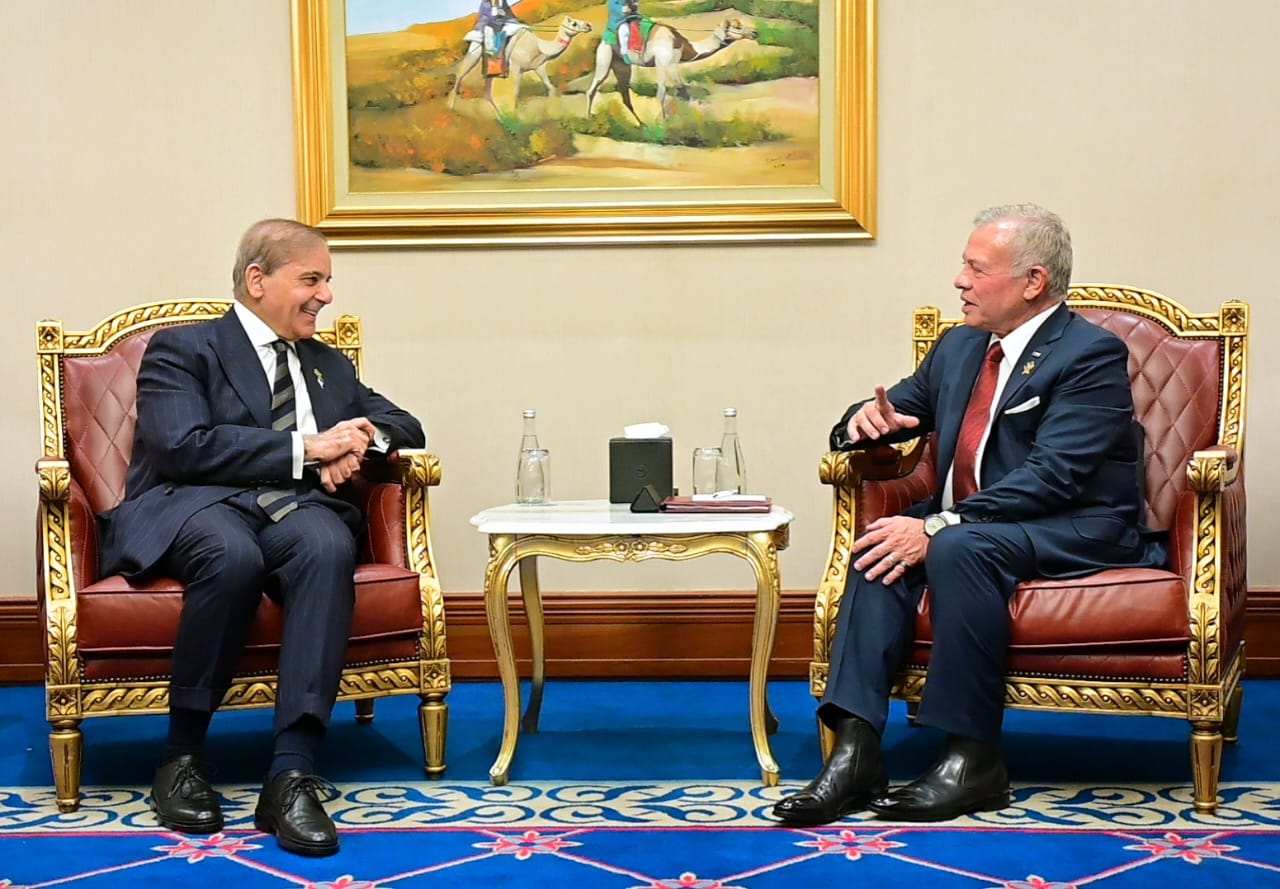
Similarly, in a meeting with King Abdullah II, Sharif reiterated Pakistan’s condemnation of the Israeli airstrike, describing it as “a grave violation of law and an attack on regional peace.”
The prime minister lauded King Abdullah II’s “steadfast leadership on the Palestinian cause” and stressed the “urgency of Muslim unity in confronting Israel’s belligerent actions.”
He added, “It is imperative that we continue close consultations to mobilize international support for peace and stability in the region.”
Pakistan’s diplomatic push at U.N.
PM Sharif’s efforts reflect Pakistan’s broader strategy to play a proactive role in international diplomacy amid escalating tensions in the Middle East.
As a non-permanent member of the United Nations Security Council, Pakistan is keen to use its position to press for a resolution condemning Israel’s recent strikes and calling for a ceasefire in Gaza.
Sharif stated, “Pakistan remains committed to leveraging all diplomatic channels, including the UNSC and the OIC, to hold Israel accountable and to advocate for the protection of Palestinian civilians.”
He further emphasized the need to respect the sovereignty of Muslim nations and condemned any unilateral acts of aggression that threaten regional peace.
Regional solidarity amid crisis
The emergency summit convened in Doha brought together leaders from across the Arab and Islamic world to forge a common response to Israel’s attack on Qatar.
Sharif highlighted the significance of the summit, saying, “It has sent a powerful message that Muslims worldwide are united against unlawful and reckless aggression.”
He acknowledged the leadership of Qatar’s Emir Sheikh Tamim bin Hamad Al Thani in hosting the summit and praised the efforts to maintain regional solidarity during a time of crisis.
The Pakistani prime minister’s active diplomacy also received praise from other regional leaders. The Saudi Crown Prince thanked Pakistan for its “active diplomatic efforts” and support for Qatar, underscoring Pakistan’s vital role in the Muslim world’s response.
Looking ahead
As tensions in the Middle East continue to escalate, Pakistan’s diplomatic efforts emphasize unity and collective action within the Muslim world.
PM Sharif’s meetings with leaders from Saudi Arabia, Egypt, and Jordan reflect a shared determination to hold Israel accountable and work toward a peaceful resolution.
Sharif concluded, “The Muslim Ummah must remain united in these critical times to protect our people, uphold international law, and restore peace and stability to the region.”
With Pakistan’s firm commitment to diplomatic engagement at multilateral forums such as the UN and OIC, the country seeks to play a constructive role in shaping the global response to the ongoing crisis.
Latest News
Pakistani, European ministers agree on coordinated strategy to combat illegal migration
2 MINUTES AGO
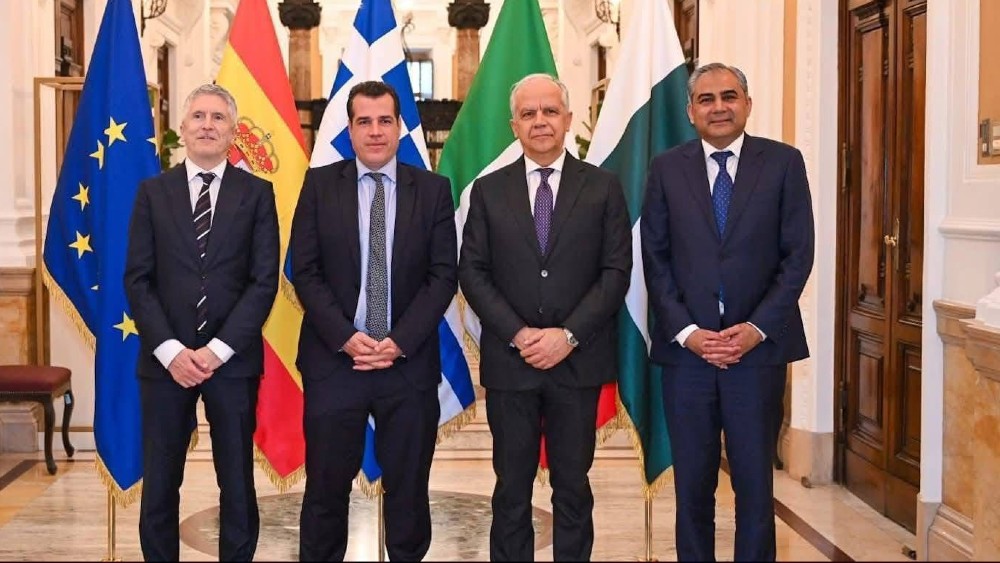
UN approves first carbon credits under Paris Agreement
16 MINUTES AGO

Pakistan to raise concerns over Israel actions in West Bank at OIC Ministerial: Foreign Office
AN HOUR AGO
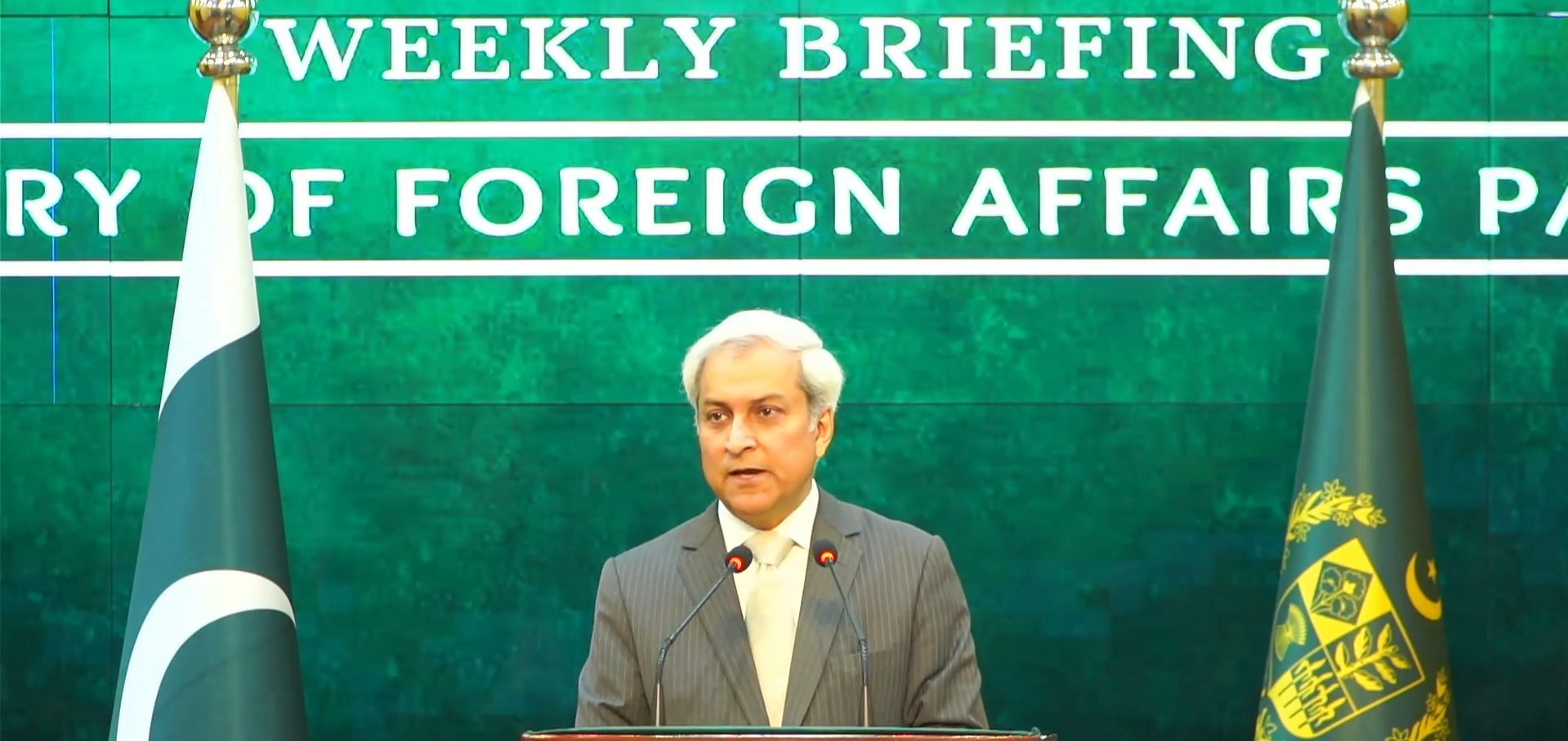
Bangladesh to distribute 0.5M farmer cards in 180 days
2 HOURS AGO
.jpg)
Iran insists not seeking nuclear weapon ahead of US talks
2 HOURS AGO
